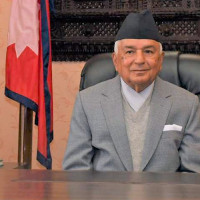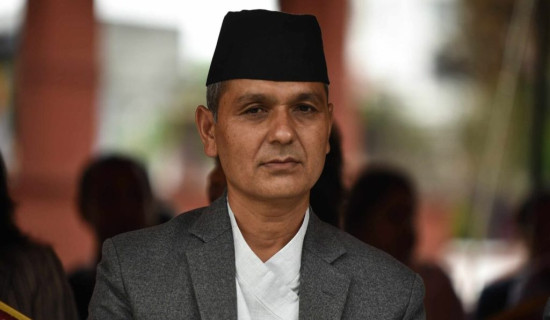- Thursday, 19 February 2026
Power Of Gen Z
No one saw it coming, especially its intensity. When the Gen Z protest was announced, even the group itself hadn’t speculated that the protest would bring a change beyond one’s imagination. When the school kids and the youth took to the streets on September 8 to raise their voice against corruption, poor delivery, and the government’s irrational decision of social media ban, the Oli-led government responded to public ire by firing, claiming as many as 19 innocent lives. The next day, on September 9, the irate youths burnt the entire nation to ashes, and even forced the resignation of the ministers.
On the government side, the order to shoot at protesting citizens came out as its reason for its downfall. However, it’s important to note that Nepali citizens have not had good times all these years, and the social media ban only triggered their disenchantment. If we view it with more sensitivity, the act of shooting protesters was inhumane and ‘undemocratic’. We suppose the leaders had brought democracy so that the public could speak and protest against the wrongdoings.
The authoritarian mindset of KP Sharma Oli suggested otherwise. He has stepped down from his dearest position, and if he wants to forgive himself for his cruelty, he should hold himself accountable for the Sept 8 massacre. It will be a great shame if he ever appears in the media with his lofty promises. What’s certain more than anything is that Nepalis will never forgive Oli.
In response to Oli’s cruelty, the Gen Z group came out prepared with flames on September 9. What followed next was spontaneous and a sharp retaliation to the government’s brutality. Till September 8 morning, the Gen Z had not included vandalism in their plan. The vandalism was merely provoked by the killing of innocent lives. Whether the vandalism of public and private property does well to the nation is entirely a different matter. It might take years to restore the structures destroyed in the Gen Z uprising.
Had Gen Z suppressed their ire and stayed indoors on September 9, KP Oli and other ministers would have never resigned from their posts. After so many years, Nepalis have gotten rid of Oli, Deuba, and Prachanda, welcoming Sushila Karki as the prime minister of the interim government. Karki’s appointment as the prime minister is both historic and inspiring. Although the decision in appointing Karki was mired in debates, the ultimate result proved that the Gen Z group was positive.
Given the spontaneity of events, the Gen Z looked helpless and vulnerable owing to weak youth leadership. On the Gen Z side, they didn’t see the big change coming, and their lack of homework can be justified. But since the generation has revolted and navigated the thorny paths by wiping out the power mongers, it’s important that they learn the trade now. Revolutions are induced by frustration, anger, and the quest for change, but their aftermath should always be handled sensibly.
It’s not to spread negativity, but it can be said with certainty that the majority partaking in the Gen Z uprising lacked political ideas. Also, the Nepali society still believes that a messiah will take over and fix everything. If Gen Z wants a positive change, they should learn to be critical and raise questions to everyone, instead of blindly idolising individuals. The country's key is in their hands.
















